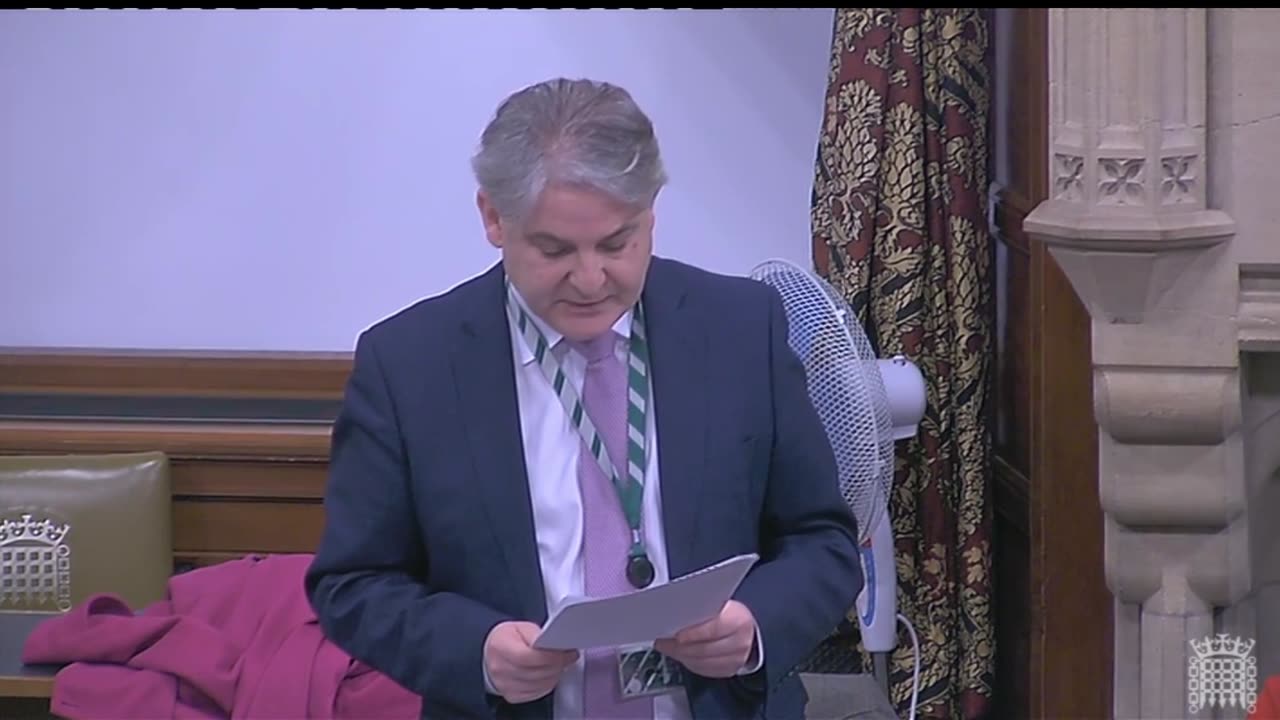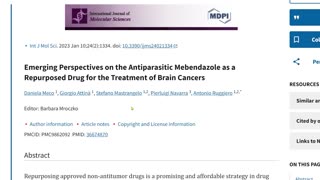Premium Only Content

Official inquiry, tittle tattle
Direct link to parliament TV, https://parliamentlive.tv/Event/Index/5e1f14d2-72b3-488f-a53c-fc94fee92dac
Link to Hansard full transcript, https://hansard.parliament.uk/Commons/2024-01-16/debates/152B485D-812D-43CC-9D25-C2B651564810/ExcessDeathTrends?highlight=westminster%20hall#contribution-46059AFE-9A03-472B-9364-0BF972E2E7D8
Philip Davies
(Shipley) (Con)
As we have seen in data published by the ONS, non-covid excess deaths continue to run higher than they should. People are dying unexpectedly across all age groups, particularly at home. Since the restrictions in March 2020, there have been 110,000 excess deaths in people’s own homes. In the week ending 22 December 2023, deaths at home were 11% higher than the five-year average. In the first 11 months of 2023, over 21,000 excess deaths took place at home, which is roughly one every 25 minutes.
Last month an article in The Lancet, co-authored by the head of mortality analysis at the ONS, stated that although
“the causes of these excess deaths are likely to be multiple”,
ONS data did show some clear trends—in particular, the “largest relative excess deaths” since the pandemic occurred in young and middle-aged adults, with the number of cardiac deaths happening outside hospitals the most elevated. In other words, young and previously healthy people are dying at home from cardiac-related events, and we do not know why. The article concludes:
“Timely and granular analyses are needed to…inform prevention and disease management efforts.”
Let us be clear: this is not a new phenomenon. Experts have been raising concerns about excess deaths since as early as 2021. I remember seeing an interview with Professor Carl Heneghan, professor of evidence-based medicine at Oxford University, where he called for an investigation into the 75,000 excess deaths at home between March 2020 and October 2021. Some 90% of those excess deaths were not covid-related, but related to things such as diabetes, heart disease and cancer. Many of those deaths could have been prevented had people not been dissuaded from seeking care, because they were told by the media and the Government to stay at home and protect the NHS. Perhaps they tried to get help but were dismissed by a health service concerned with only one disease.
The calls for an investigation went ignored then, just as they are ignored now. Perhaps the covid inquiry, as others have said, should make better use of Professor Heneghan’s time by asking about this topic rather than the tittle-tattle that it seems to revel in. The pertinent question is: why did we lock down at all? That is what I think did the biggest damage.
We can all speculate on the cause of excess deaths, which are clearly happening, from withdrawal of healthcare during lockdown, the increased risk of sedentary lifestyles and alcohol consumption, the impact of the pandemic and related restrictions on NHS staffing levels, increasing NHS waiting times, lack of access to emergency care, covid-19 vaccine adverse reactions or another unknown cause—perhaps a mix of all of the above. Until the Government commit to a robust and independent investigation, we will not know for sure and the speculation will keep going. That is why the Government need an investigation rapidly.
-
 19:30
19:30
Dr. John Campbell
6 days agoWorm meds for cancer
33.6K229 -
 4:28:45
4:28:45
Etheraeon
16 hours agoWorld of Warcraft: Classic | Fresh Level 1 Druid | 500 Follower Goal
45.5K -
 3:17:21
3:17:21
VapinGamers
8 hours ago $3.60 earned🎮🔥Scrollin’ and Trollin’: ESO Adventures Unleashed!
31.2K2 -
 LIVE
LIVE
a12cat34dog
9 hours agoGETTING AFTERMATH COMPLETED :: Call of Duty: Black Ops 6 :: ZOMBIES CAMO GRIND w/Bubba {18+}
307 watching -
 8:23:18
8:23:18
NubesALot
11 hours ago $5.12 earnedDark Souls Remastered and party games
27.9K -
 3:03:42
3:03:42
GamersErr0r
23 hours ago $2.14 earnedits not what you think
22.9K1 -
 7:15:50
7:15:50
Phyxicx
9 hours agoRocket League with Friends! - 11/22/2024
17.1K1 -
 7:54:29
7:54:29
STARM1X16
10 hours agoFriday Night Fortnite
14.3K -
 29:51
29:51
Afshin Rattansi's Going Underground
1 day agoJimmy Dore on Ukraine & WW3: Biden Wants a War that Trump CAN’T Stop, ONLY Hope is Putin’s Restraint
72.2K32 -
 3:20:54
3:20:54
Fresh and Fit
11 hours agoExposing WHO Killed JFK w/ Cory Hughes & Tommy Sotomayor
93.2K59